Resources
GFI’s top alternative protein resources
Access a wide range of scientific and business data, research, and insights, which are key to accelerating the local and global alternative proteins ecosystem.
Explore our library of up-to-date resources: in-depth academic papers on the science of smart proteins, stakeholder and ecosystem databases, reports on consumer perception and trends, comprehensive market analyses, and more.

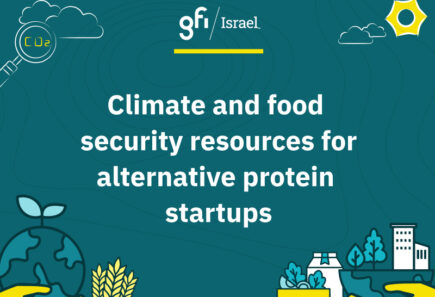
GFI Israel welcomes the opportunity to help emerging and growing alternative protein startups navigate climate funding and food security challenges. We have developed this suite of resources intended to guide entrepreneurs and founders' work to position their innovations within the climate-smart food system. SSF holds immense potential to solve some of the biggest challenges in the alternative protein industry — from improving texture and flavor to enhancing nutritional profiles and reducing production costs.
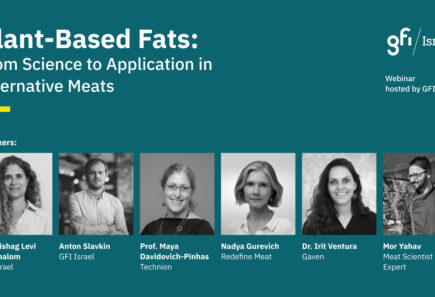
Experts from academia and industry will present current research and technological developments on fat functionality, nutritional value, and ingredient innovation in plant-based and blended meat products.
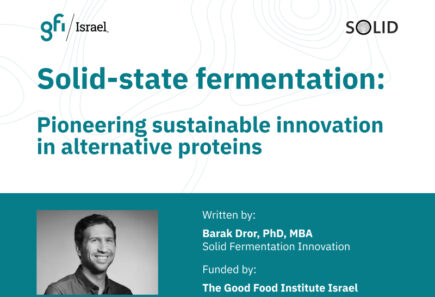
Solid-state fermentation (SSF) could be a game-changer for the alternative protein industry — and we've just released a comprehensive report in collaboration with Barak Dror, PhD, MBA that lays it all out.
SSF holds immense potential to solve some of the biggest challenges in the alternative protein industry — from improving texture and flavor to enhancing nutritional profiles and reducing production costs.
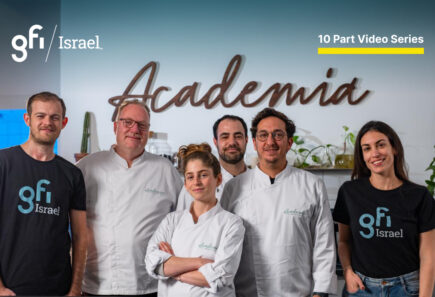
A brand-new series of 10 bite-sized videos is now available to enhance your understanding of plant-based meat R&D. Whether you're refining your skills or looking to deepen your knowledge, this video series covers the three foundational pillars that are crucial to creating better, tastier, and more functional plant-based products.

In a rapidly evolving industry, staying ahead requires more than innovation—it demands strategic leadership. The 2025 Executive Program offers senior leaders from diverse sectors a unique opportunity to connect, exchange insights, and build lasting relationships within the global alternative protein ecosystem.
As the industry reaches a critical turning point, this program is designed to help leaders regroup, refine their strategies, and drive meaningful impact within their sectors. Together, we will create a network of decision-makers who will collectively shape the future of sustainable food systems.
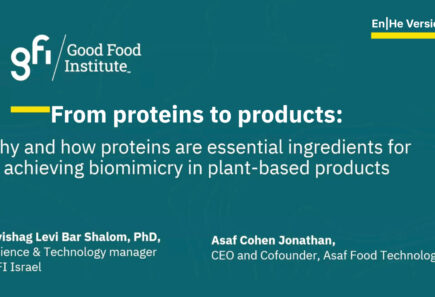
Why and how proteins are essential ingredients for achieving biomimicry in plant-based products:
In this learning, we will explore the aspects of biomimicry and functionality, as well as the importance of key protein traits in creating high-quality plant-based products.
Speakers: Asaf Cohen Jonathan, Founder and CEO | Asaf Food Technologies Avishag Levi Bar Shalom, PhD., Science and Technology Manager | GFI Israel

This resource offers a practical three-step guide for developing a national alternative protein strategy, essential to transforming the global food system. Designed to help governments leverage their unique strengths and address the rising demand for sustainable protein.

Explore the World Economic Forum's first report on alternative proteins, created with the Israel Innovation Authority and GFI Israel. Featuring Israel as a case study, it reveals how country-tailored national strategies can advance alternative proteins and address global challenges.

Explore the landscape of plant-based, cultivated, and fermentation companies in Israel. Use the database to stay current on new companies in the space, find a partner, or identify groundbreaking startups.

This paper examines the potential of alternative seafood to protect and restore biodiversity, emphasizing the need for a collaborative effort from various stakeholders to address environmental challenges.

Consumer demand for plant-based meat is outpacing supply. This analysis outlines necessary ingredient volumes and manufacturing needs to identify and prevent future production bottlenecks.

The plant-based meat industry has grown significantly, requiring supply chains to keep up. This analysis by GFI and Bright Green Partners assesses current manufacturing and explores ways to expand capacity for future demand.

